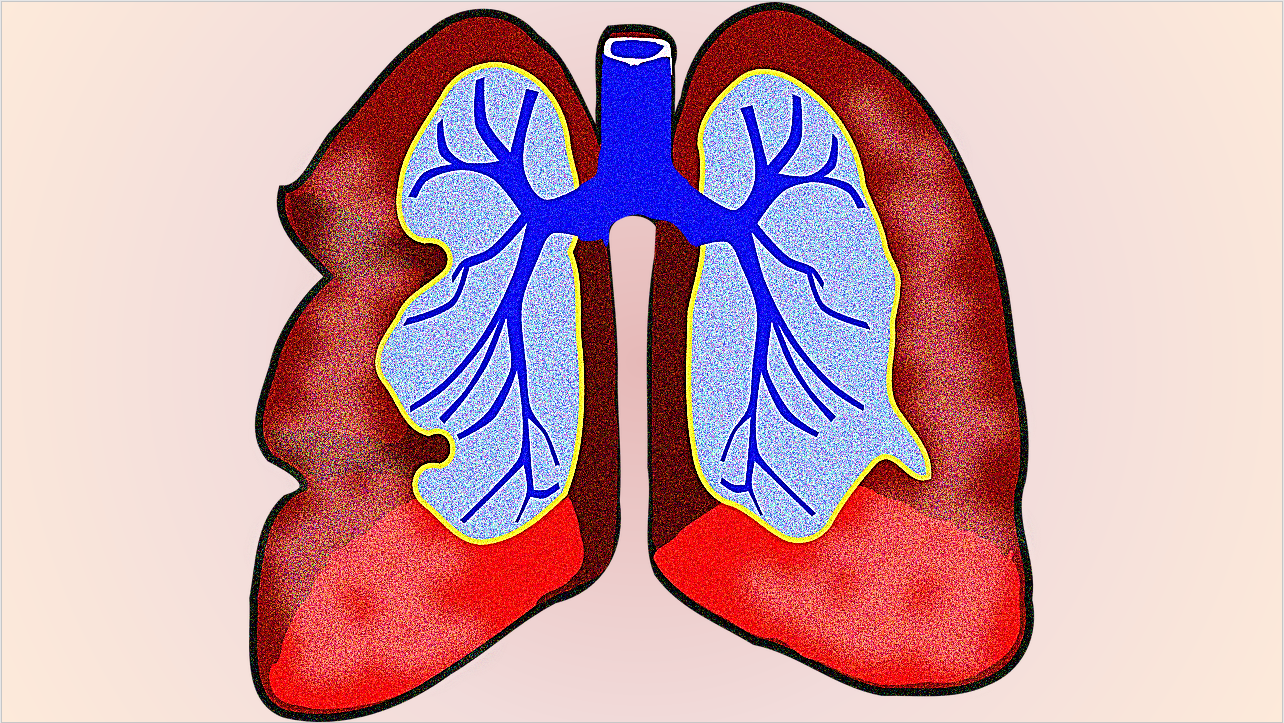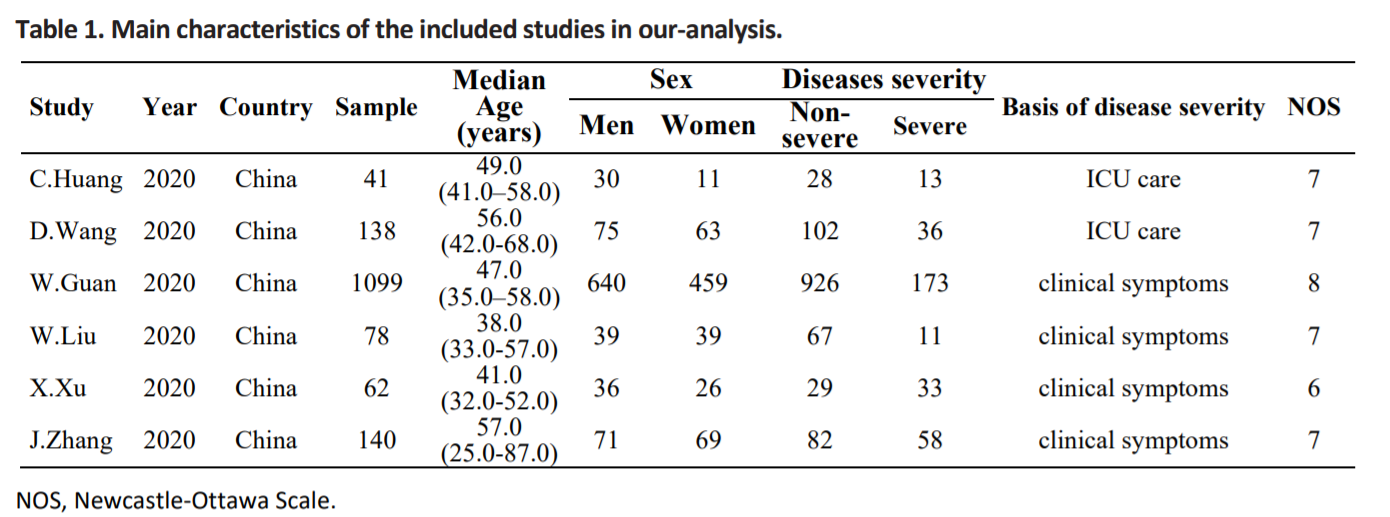This article has been made free for everyone, thanks to Medium Members. For more information on the novel coronavirus and Covid-19, visit cdc.gov.

Meta-Analyses Reveal Who Should Be More Cautious of COVID-19
And why chronic obstructive pulmonary disease (COPD) — or smoking — and COVID-19 are the worst possible duo
 On
On
8th April, Chinese researchers at Weifang Medical University published the first peer-reviewed meta-analysis about medical comorbidities and COVID-19 disease severity. They screened several literature databases and retrieved 6 studies for analysis. All studies are of high-quality with a Newcastle-Ottawa Scale (NOS) score of at least 6 points (see table below).
- 6 studies researched hypertension, diabetes, and chronic obstructive pulmonary disease (COPD).
- 5 studies examined liver disease.
- 4 covered malignancy, renal disease, and cardiovascular disease.
- 3 evaluated cerebrovascular [blood vessels] diseases.

Meta-Analyses Outcomes
COVID-19 patients with cerebrovascular diseases (OR: 3.89), cardiovascular diseases (OR: 2.93), hypertension (OR: 2.29), diabetes (OR: 2.47), and COPD (OR: 5.97) had an increased risk of disease exacerbation/progression, the researchers reported.
Odds ratio (OR) of 1 means neutral — wherein the occurrence of an event is neither increased nor decreased. OR >1 means an increased occurrence of an event. OR <1 means a decreased occurrence of an event.
To translate what they have reported, COVID-19 patients with cerebrovascular (or blood vessel) diseases have a 289% increased odds (or 3.89 times more likely) to progress into a more severe condition. Likewise for the rest:
- Cerebrovascular disease: 289% increased odds (or 3.89 times more likely).
- Cardiovascular disease: 193% increased odds (or 2.93 times more likely).
- Hypertension: 129% increased odds (or 2.29 times more likely).
- Diabetes: 147% increased odds (or 2.47 times more likely).
- COPD: 497% increased odds (or 5.97 times more likely).
- Liver disease, malignant tumor, or kidney disease: No significant correlation.
Liver disease, malignant tumor or kidney disease seems uninvolved in COVID-19 prognosis. “Our meta-analysis did not provide sufficient evidence that there was a correlation between liver disease, malignant tumor or kidney disease, and COVID-19 patients’ aggravation,” the authors explained.
“The meta-analysis identified hypertension, diabetes, COPD, cardiovascular disease, and cerebrovascular disease as significant risk factors for COVID-19 patients,” they concluded. “The knowledge of these factors can better define those COVID-19 patients at higher risk, and thus allow a more targeted and specific approach to prevent those deaths.”
Physicians should be particularly careful about COVID-19 patients with COPD, as the Chinese further emphasized,
“COVID-19 patients with COPD had a 5.9-fold higher risk of progression than patients without COPD.”
Another similar meta-analysis encompassing 7 studies — but not peer-reviewed yet — by researchers from London, UK, also cautioned against COPD as the major ‘bad sign’ for COVID-19 patients. As per their conclusion,
“COPD was by far the strongest risk factor for COVID-19 severity, followed by [cardiovascular disease] and hypertension.”
Why Is COPD Particularly Bad?
Chronic obstructive pulmonary disease (COPD) refers to the lung damage wherein air sacs are destroyed. This leads to poor oxygen-carbon dioxide gas exchange — making breathing difficult. COPD is largely a lifestyle disease with no cure, of which 85–90% of cases are caused by habitual cigarette smoke.
“This suggests that there has never been a better time to quit smoking to protect yourself from COVID-19.”
Researchers at the University of British Columbia found that lung cells of cigarette smokers and COPD patients have higher expression of the ACE2 receptor, which SARS-CoV-2 (the virus that causes COVID-19) use to enter cells. “We found that patients with COPD and people who are still smoking have higher levels of ACE-2 in their airways, which might put them at an increased risk of developing severe COVID-19 infections,” they said.
The increased expression of ACE2 receptors is actually a defense mechanism in response to damaged air sacs. “While the up-regulation of ACE-2 may be useful in protecting the host against acute lung injury, chronically, this may predispose individuals to increased risk of coronavirus infections, which uses this receptor to gain entrance into epithelial cells,” the authors explained.
“This study gives some interesting insight into why some people may be at risk of more severe COVID-19 symptoms than others,” remarks Tobias Welte, a professor at the Department of Pulmonary and Infectious Diseases at Hannover University School of Medicine and a coordinator for the national German COVID-19 task force. Professor Welte also suggests a personalized therapy “to manipulate ACE-2 levels to improve survival in patients infected with COVID-19.”
The good news is that it’s never too late to quit smoking. “We also found that former smokers had similar levels of ACE-2 to people who had never smoked,” the researchers added. “This suggests that there has never been a better time to quit smoking to protect yourself from COVID-19.”



No comments:
Post a Comment
i love you everything ,